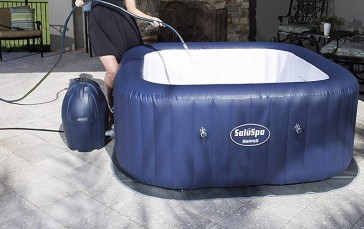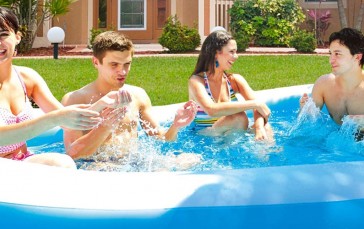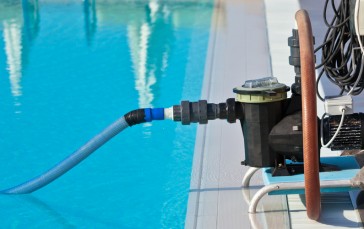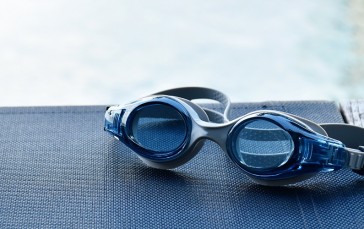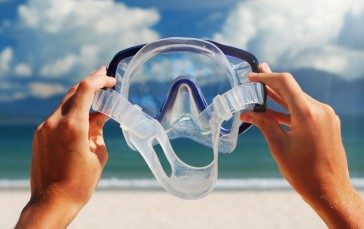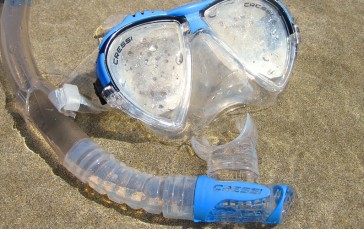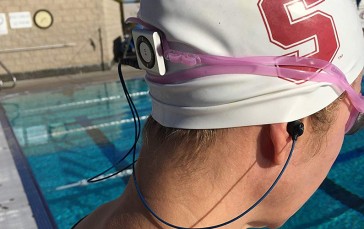Why You Should Buy an Above-Ground Pool
Is your child begging you for a pool, but you aren’t ready to commit to the effort of building an in-ground pool or, even more so, the cost? Be the parent of their dreams, avoid all the hassles of an in-ground pool, and get an above-ground pool instead! Here are some additional reasons you should consider getting an above-ground pool.
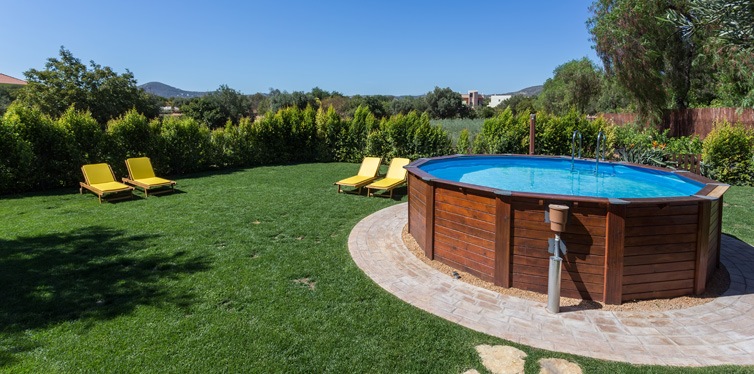
1. Expenses And Cost
Above-ground swimming pools are significantly cheaper than in-ground pools. In-ground pools, on average, cost about $15,000 to upwards of $20,000, while above-ground pools are more in the range of $1,000 to $4,000 depending on whether you go with a backyard inflatable pool or a rigid structure. And you won’t have to compromise on pool quality either if you invest in a nicer above-ground pool which will still be cheaper than an in-ground pool, by quite a margin.
There are more maintenance costs associated with an in-ground pool than you might think. There will be yearly costs of just keeping the pool clean, and you will also see an increase in your water and electric bills. The maintenance and upkeep of an above-ground pool are much less costly, saving you high yearly expenses.
Another expense to keep in mind is that in-ground pools will raise the value of your home, which, in turn, may increase your property taxes as well. An above-ground pool is an impermanent fixture that does not increase property taxes.
2. Pool Installation
In-ground pools can take months to finish, while an above-ground installation can take as little as one day! You don’t have to worry about digging a large hole in your yard, and generally, the installation of an above-ground pool is a stress-free process.
Many manufacturers recommend hiring someone for your above-ground pool installation. Typical installation costs run around $1,000 to $3,000 depending on the size of the pool. If you are handy and feel confident in your assembly skills, you can buy above-ground pools that you can install yourself.
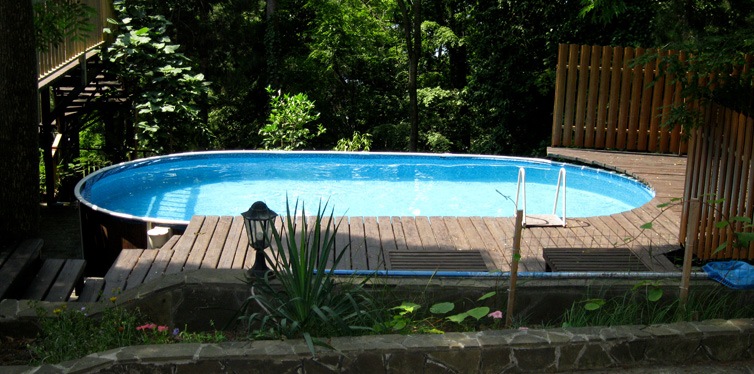
3. Above-Ground Pool Features
There are a few things to consider when looking at the different types of above-ground pools. First, consider the pool’s construction. What type of frame you want is the primary choice you will need to make with a selection of four types: steel, resin, hybrid, or radiant. The liner is also crucial to the durability of the pool, and your options include overlap, beaded, uni-bead, or expandable.
Other things to consider that are more dependent on your circumstances are size, shape, and depth of the pool. Size and shape will depend on the space you have, and most above-ground pools are round or oval-shaped. The general wall heights of above-ground pools are 48 inches, 52 inches, and 54 inches. When considering the depth of the pool, the main question you will want to ask is, “who is this pool for?”. Depending on whether the pool is primarily for adults, children, or both, you may want to choose a deeper or shallower pool.
4. Space And Mobility
If you have a smaller backyard, you can likely find an above-ground that will fit your space because above-ground pools take up much less space than in-ground pools. Plus, with the permanence of an in-ground pool, it would be extremely costly to remove the pool. And, if you are moving, obviously you can’t take an in-ground pool with you. But with an above-ground pool, you can bring it along!
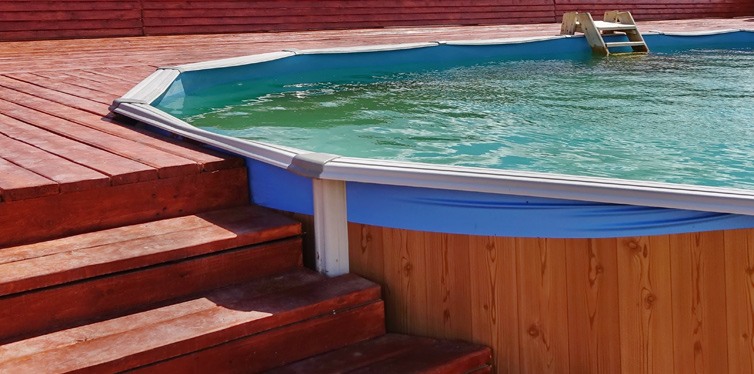
5. Safety
The higher entry point of an above-ground pool is also advantageous in regards to safety. Unlike an in-ground pool, there is no way of accidentally falling in because an above-ground pool has a fence around it. If you have young children or pets that you might be concerned about, this will give you added peace of mind. You also have the option of removing the ladder for extra security.
6. Maintenance
You will need a pool pump and filter system to keep the pool clean. A lot of above-ground pools come with pool pumps and a filter included, which is a huge plus, meaning you won’t have to spend extra money on these items. If you want to buy your own, you can choose from three types: sand filters, cartridge filters, and D.E. (Diatomaceous Earth) filters. You will also need a pool test kit and other pool cleaners to keep your pool water clean and clear.
In regards to winterizing an above-ground pool, it is a similar process but with fewer steps to closing an in-ground pool. Usually, with an in-ground pool, it is recommended to hire a service to do the process for you, but with an above-ground pool, winterizing your pool is completely doable on your own. Using chemicals and a safety winter cover, you can leave the water in the pool for the colder months.
And when the summer rolls around, you can get your pool back up and running, pull out your swimming trunks, and enjoy your pool all summer long.


